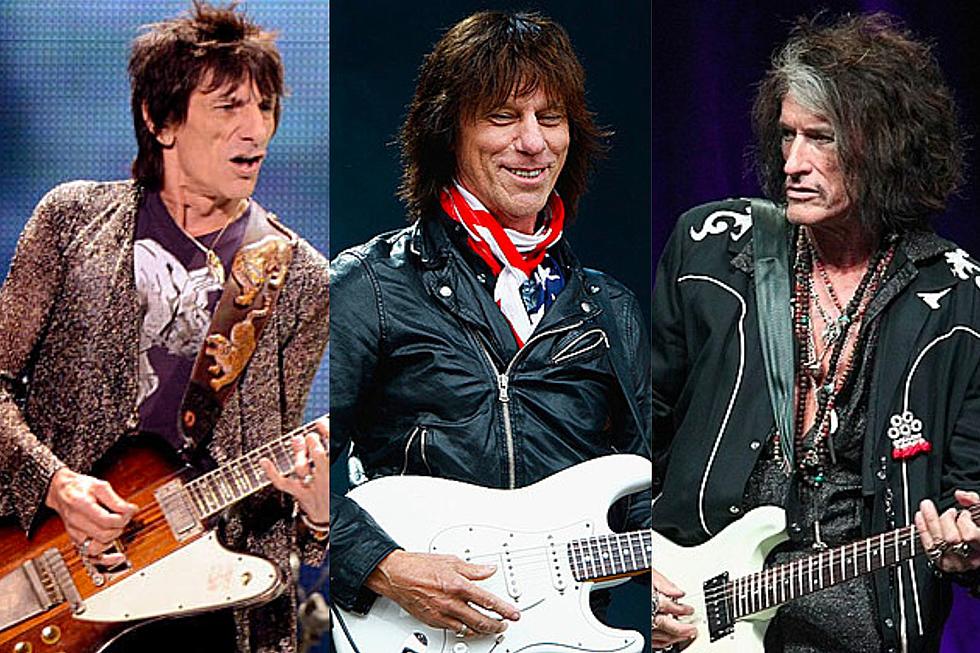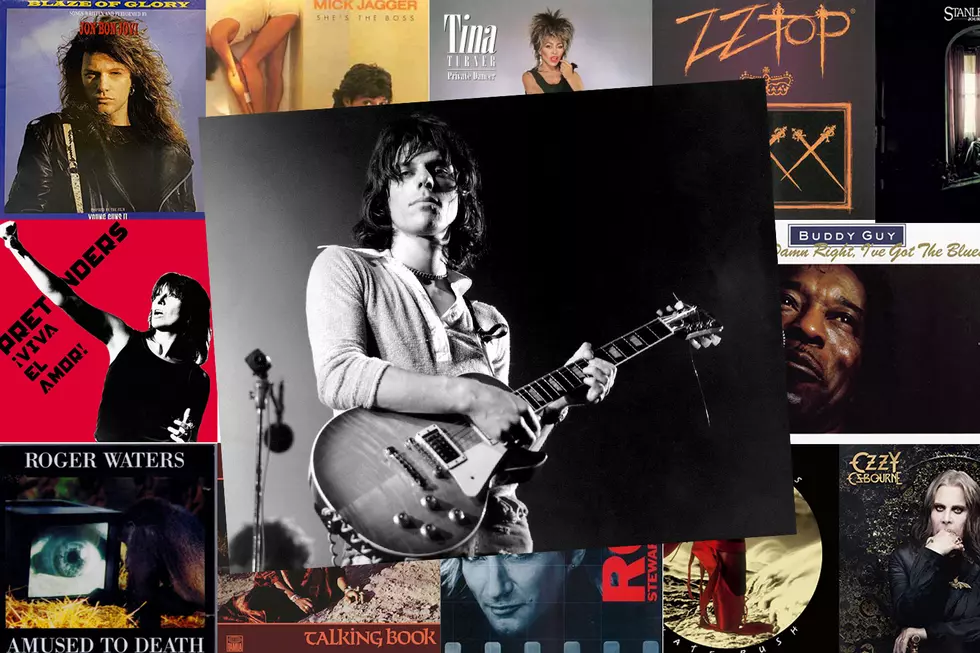
How the Jeff Beck Group Began Rebuilding With ‘Rough and Ready’
Jeff Beck found fast, funky chemistry, if less initial chart success, with the second edition of the Jeff Beck Group.
Rough and Ready, released on Oct. 25, 1971, couldn't match the Top 20 finish of the group's two earlier albums. But something clicked, as Beck established a lineup that would last for two albums, and began a lengthier collaboration with pianist Max Middleton. In fact, Beck had so much trust in the new guys that he risked destroying the master tapes to get Rough and Ready – which was recorded on an eight-track machine – just right.
"We’d finished Rough and Ready and it was now time to put it in its box," Middleton told Keyboard magazine in 2014. "Then [new drummer] Cozy [Powell] announced to Jeff that he’d bought a brand new drum kit, it had just arrived, and he wanted to put it on the record."
The danger was that by recording over Powell's tracks, something else might be lost on the now-completed project. But Beck believed in his reformed group enough to relent, erasing the old drum performance as Powell laid down a new one live in the studio.
"They put the tape on, and Jeff said, 'If you make a mistake, I’m gonna kill you,'" Middleton remembered. "Cozy played the album from the beginning to the end with his new drum kit, straight up. That shows what a great drummer he was. You wouldn’t have known that he’d overdubbed drums on the whole album."
In this way, Rough and Ready pointed to an improved creative situation for Beck – even though the occasionally unfocused album stalled just outside the Top 50. Beck said he had felt hemmed in before, unable to really let loose inside an original Jeff Beck Group lineup that included headliner names like Rod Stewart, Ron Wood and Nicky Hopkins.
"I saw other groups, like Sly [and the Family Stone], groups that really floored me, and they made me realize that this group was limited, that there was an end to it – and that's the time to get out, finish it," Beck told Rolling Stone in 1971.
Listen to the Jeff Beck Group Perform 'I've Been Used'
At the same time, a period following the release of 1968's Beck-Ola was spent recovering from an awful car accident – which served to give the guitarist some perspective. "We're not going to throw away the heavy sound," Beck told Rolling Stone back then. "There's just some things you have to keep. I mean, drummers and bassmen have been working for years to get that sound down, you just can't chuck it all out for acoustic guitars, can ya? Naah, I like it funky."
Perhaps the most noticeable signal of eventual rebirth can be found inside the liner notes, which showcased six songs written or co-written by Beck. The guitarist has never been a prolific composer, meaning many of his releases – including the following year's Jeff Beck Group album – tend to be dominated by cover songs.
"I have to really feel something to be able to write, and I don't have the skill all the time," Beck told The Reporter in 2014. "When I do it right, then I know it will be. But I can take any track and make it my own and rework it to give it my touch."
Taking a more hands-on touch, Beck pushed new vocalist Bob Tench – who, to his eternal credit, often sounds more like Felix Cavaliere here than Stewart – lower in the mix, giving Rough and Ready a more aggressive feel. At the same time, however, tougher fare like "Short Business," "I've Been Used" and "New Ways" was balanced out with the jazzy "Situation" and surprisingly wistful "Raynes Park Blues." Elsewhere, "Train Train" provides a showcase for Powell, and Middleton shines on his lone original, "Max's Tune."
None of it was necessarily groundbreaking, so much as an indication that Beck was finally getting back on track. This spark came naturally, without much preparation or planning – and it pointed to the looming successes of their gold-selling 1972 self-titled album and then the platinum mid-'70s smashes Blow by Blow and Wired, which both featured Middleton.
"I'd never heard of him," Middleton – a classically trained former dock-loader – admitted in 2014. "We played, and that evening he said, 'Do you want to make a record?' I said, 'Yeah, alright,' as if this were quite normal. But it wasn’t. I was young and foolish and didn’t think about it. We just went in the studio and started trying to do something. It was as simple as that; it was lucky."
See Jeff Beck Among the Top 100 Albums of the '60s
More From Ultimate Classic Rock









